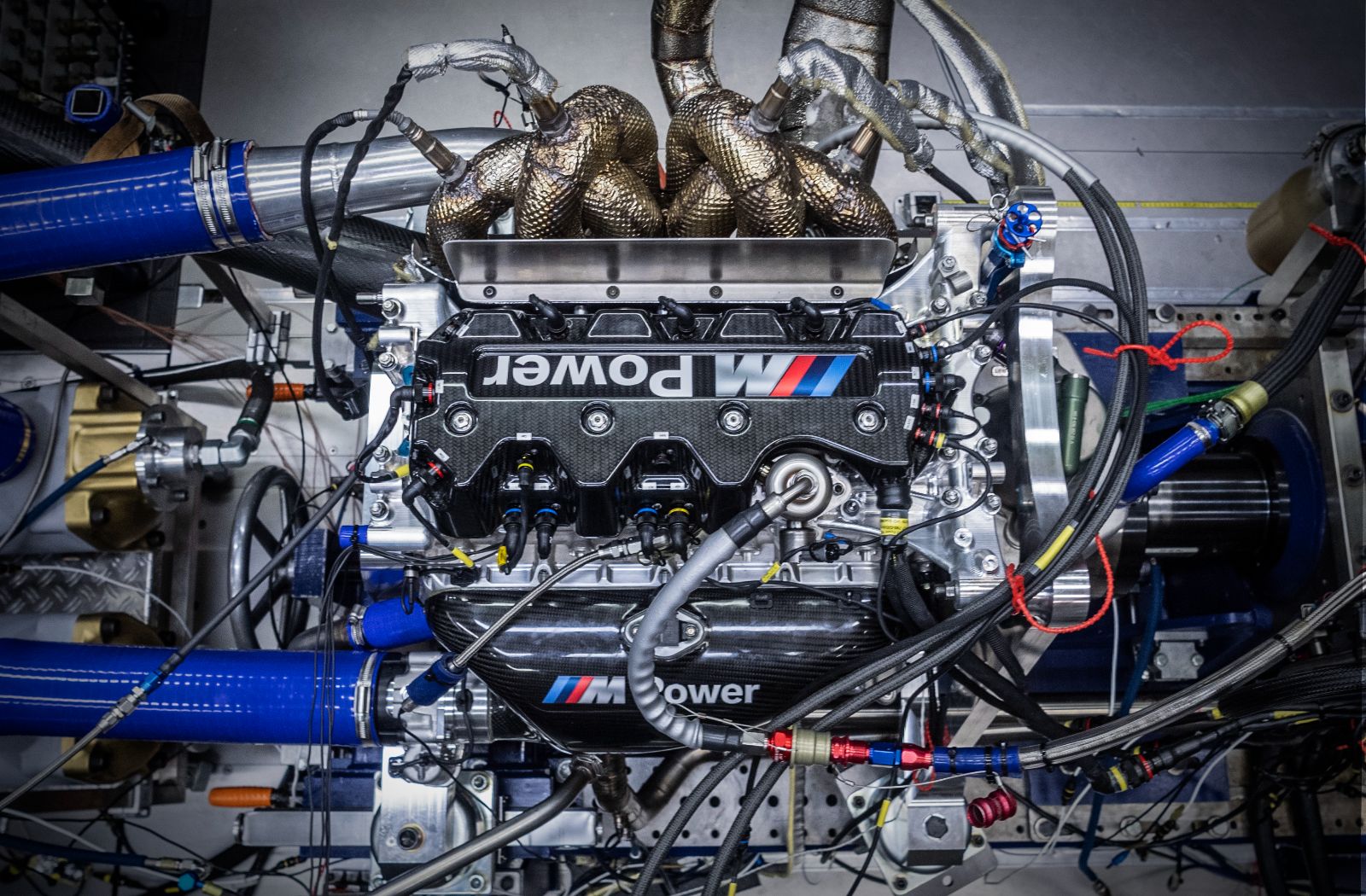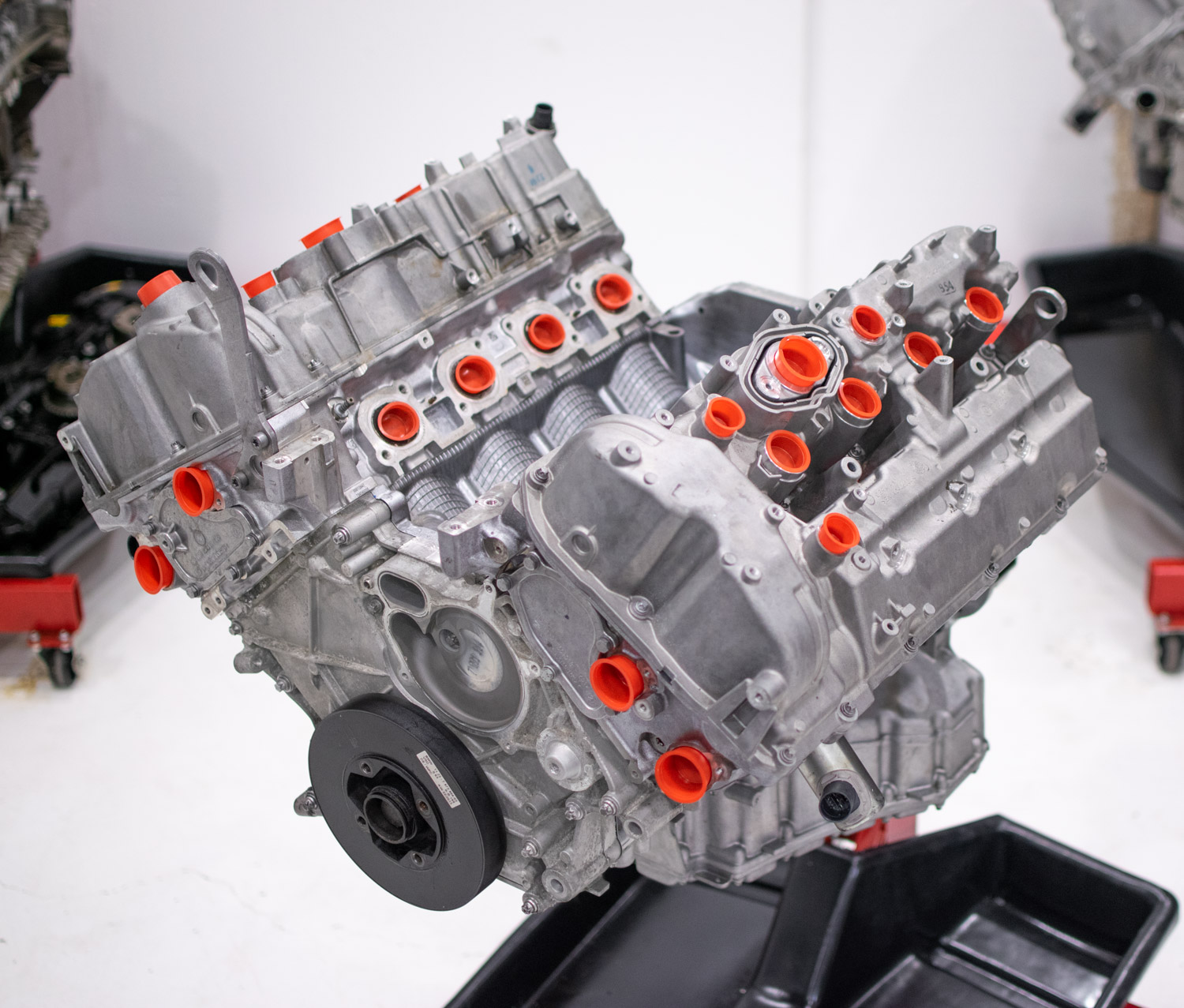Revealing the Intricacies of Next-Generation Power Units: a Deep Dive Into Advanced Engine Designs and Developments
In the world of automobile engineering, the relentless pursuit of performance, performance, and sustainability has actually propelled the evolution of power units to unprecedented elevations. As we base on the precipice of a new era in transportation, the complexities of next-generation engine designs bid us to check out the advanced technologies and innovations that assure to redefine the driving experience. From innovative materials that push the borders of sturdiness and weight decrease to innovative turbocharging and turbo charging systems that raise power result to new levels, each part of these power systems holds a key to opening the future of auto design. Digging much deeper into the realms of discharge control, intelligent engine management systems, and the perspective of power unit growth, we find ourselves on the cusp of an improvement that promises to improve the landscape of movement as we understand it.
Development of Engine Materials

The change towards advanced engine materials has likewise made it possible for designers to design engines with higher power outcomes while preserving fuel effectiveness criteria. For example, the use of light-weight products decreases the overall weight of the engine, resulting in enhanced fuel economic climate and lower exhausts. Additionally, developments in materials technology have enabled far better thermal monitoring within engines, causing enhanced dependability and longevity.
Turbocharging and Supercharging Technologies
Exactly How do Turbocharging and Supercharging Technologies transform engine performance and efficiency in modern-day automobiles? Turbocharging and supercharging are modern technologies that dramatically boost engine efficiency by increasing the quantity of air intake right into the combustion chamber. Turbocharging accomplishes this by utilizing a generator driven by exhaust gases to pressurize the intake air, while turbo charging utilizes a belt- or chain-driven compressor to attain the very same effect.
These modern technologies allow smaller sized, much more fuel-efficient engines to generate power equivalent to larger ones, referred to as downsizing. By compeling even more air into the cylinders, turbo charging and turbocharging boost combustion performance, causing enhanced horse power and torque outcome without a significant boost in engine dimension. This results in far better velocity, lugging ability, and total driving performance.
Moreover, turbo charging and turbocharging add to boosted gas performance by enabling the use of smaller sized engines that consume less fuel under normal driving conditions - bmw engine. This mix of boosted efficiency and effectiveness has actually made turbocharging and supercharging essential elements of many modern-day engine designs
Exhaust Control and Environmental Influence
With increasing worldwide issues concerning air top quality and ecological sustainability, the execution of exhaust control technologies in cars plays a crucial duty in decreasing harmful contaminants released into the atmosphere. Modern lorries are outfitted with sophisticated discharge control systems that aid reduce the ecological influence of auto operations. Catalytic converters, as an example, are developed to convert harmful gases such as carbon monoxide gas, nitrogen oxides, and hydrocarbons into less harmful compounds like co2 and water vapor.
Additionally, advancements in engine modern technology, such as the integration of exhaust gas recirculation systems and careful catalytic decrease, have actually substantially next added to lowering emissions. These modern technologies operate in tandem to maximize combustion effectiveness and decrease the release of harmful contaminants right into the air. Additionally, the growth of crossbreed and electrical automobiles represents a critical step towards minimizing the overall ecological footprint of the transportation industry.
Intelligent Engine Administration Equipment

Additionally, these systems allow lorries to meet rigid exhausts standards without endangering efficiency, giving a much more eco-friendly driving experience. The integration of expert system and artificial intelligence capabilities in engine administration systems continues to press the borders of what is possible, causing additional improvements in effectiveness, reliability, and total vehicle efficiency. bmw engine. As automotive technology developments, smart engine management systems will certainly play a vital function in forming the future of transportation in the direction of a much more lasting and reliable direction
Future Trends in Power System Growth
As intelligent engine management systems lead the means for boosted control and optimization in modern vehicles, future trends in power device development are positioned to redefine the landscape of automobile propulsion modern technologies. One of the essential patterns driving development in power unit advancement is the change in the direction of electrification. With a boosting concentrate on sustainability and lowering carbon emissions, hybrid and electrical powertrains are becoming more common in the vehicle industry. These different source of power offer enhanced efficiency and performance while straightening with rigorous ecological laws.
An additional considerable trend is the integration of innovative materials and producing strategies. Light-weight materials such as carbon fiber and aluminum are being made use of to minimize total lorry weight, enhancing fuel efficiency and performance. In addition, improvements in 3D printing and additive manufacturing are enabling the production of complicated engine components with higher precision and durability.
Moreover, man-made knowledge and artificial intelligence are playing a critical role in optimizing power system performance. These innovations enable real-time tracking and flexible control, causing much more reliable and dependable power delivery. In general, future patterns Find Out More in power unit growth are geared in the direction of performance, efficiency, and sustainability, driving the automobile industry towards a brand-new period of propulsion modern technologies.

Conclusion
Finally, the innovations in engine products, turbocharging, emission control, and intelligent administration systems have actually led the way for next-generation power systems. These developments have not just improved efficiency and performance yet likewise minimized environmental effect. As technology remains to advance, future trends in power system growth are likely to concentrate on more enhancing sustainability and enhancing power output. The elaborate styles and innovations in contemporary engines display the continuous evolution of auto modern technology.
Exploring the dynamic advancements in engine materials has been pivotal in boosting the performance and performance of modern-day engines. Over the years, the advancement of engine materials has played an essential role in pushing the limits of what engines can attain.The change towards advanced engine materials has actually likewise allowed designers to make engines with higher power results while preserving fuel efficiency standards.The execution of smart engine management systems in modern-day lorries has actually changed the method engines are controlled and optimized for performance and effectiveness. By accumulating information in real-time and examining it with innovative formulas, intelligent engine management systems can adapt to driving styles, environmental variables, and engine wellness to take full advantage of power output while minimizing gas consumption and discharges.
Comments on “Unveiling the Keys Behind the Power of the BMW Engine”